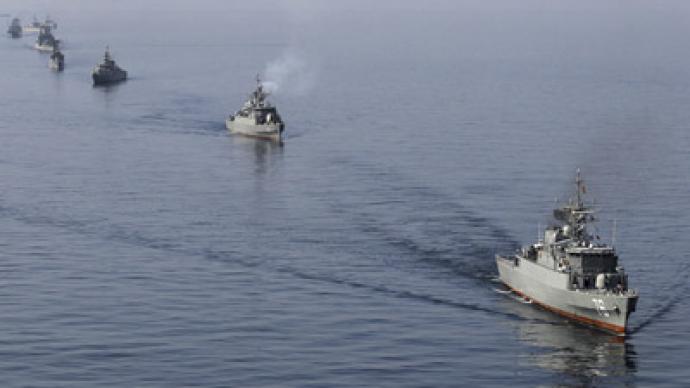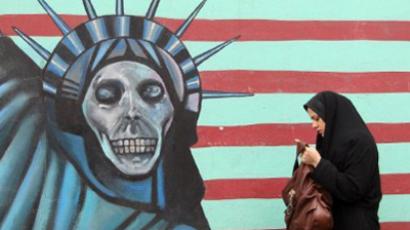SWIFT reaction: Iran 'will retaliate', closing Hormuz Strait

Tehran’s threats to block the Strait of Hormuz in response to sanctions are not mere words, warned Iran’s senior spokesman on sanctions. As long as the West ignores international law to promote its interests, Iran will retaliate, he said.
Closing the strait would be a response equal to the West’s unlawful severing of Iran from global commerce, believes Iran’s senior spokesman on Western sanctions and former intelligence minister Ali Falahian.“I suggest that the West take seriously our threat to close the Strait of Hormuz,” he said on Sunday, as cited by the Israeli-based news website DEBKAfile. It is not the first time Iran has threatened to cut the world off from sources of oil in the Persian Gulf, though this time Iran might not be bluffing. According to DEBKAfile’s military sources, Iran has sufficient military resources to block the strategic strait as well as paths to the region’s oil export terminals. Some 17 per cent of the world’s oil supply passes through the Strait of Hormuz, and Iran is believed to be capable of mining the whole waterway within a relatively short amount of time.Some regional players believe at this point a military confrontation in the Gulf is almost inevitable."We can see that the threat of an unfortunate flash of military confrontation is more possible rather than it is remote," said Oman’s foreign affairs minister, Yousuf bin Alawi bin Abdullah, as cited by Reuters.With a massive international fleet already deployed in the region, the West seems ready to react and reopen the crucial waterway. At the moment, three US and one French nuclear aircraft carrier are present just outside Iranian waters. In addition to this, the West has several dozen minesweepers and mine hunting helicopters on patrol in the region. Iran’s harsh reaction comes after the country was cut off from the Society for Worldwide Interbank Financial Telecommunication (SWIFT). On Saturday, scores of Iranian banks were blocked from doing international business, after SWIFT fell in line with the EU sanctions targeting Iran’s controversial nuclear program. Meanwhile, Iran seems to be getting tired of Western criticism of its nuclear research, which it had always said is for purely civilian purposes. Iran has refused to make concessions, and the international community must accept the country’s nuclear program or incur “heavy losses,” senior lawmaker Alaeddin Boroujerdi said, as cited by the Jerusalem Post.
Foes of Iran, represented by certain ‘interest groups,’ are now forcing the country into a corner – despite CIA and Israeli intelligence insisting that Iran is not developing nukes. That is according to political analyst and historian Peter Rushton, who spoke to RT. “I think what we are seeing at the moment has been the culmination of a long-term effort by Iran’s enemies to force the Iranian government into a corner, to force them into a position where they are left with an invidious choice between having to steer a course between on the one hand seeming to be bullied and giving in and appearing weak, and on the other hand allowing themselves to be provoked and allowing themselves to be forced into a confrontational position,” Rushton said. A recent anonymous announcement by American and Israeli intelligence officials saying that Iran is not gearing towards nuclear weapons was made in order to prevent certain ‘interest groups’ from abusing spy work for the sake of a political agenda, Rushton added. “There is political-ideological agenda in Washington and Tel Aviv, to an extent in London as well, to willfully misinterpret intelligence, to spin intelligence in a direction that forces people on the path to war,” he said. “We saw it in Iraq where there were absolutely disastrous consequences from the intelligence process being abused and I think we are seeing it now here in Iran.”














